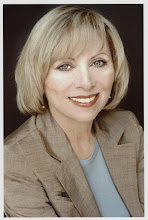I watched a CNN segment today on the potential of controlling the emotions of traders on the floor so that they could make rational vs. emotional decisions while trading. Dr. Lo of MIT is working on such an experiment trying to ultimately improve their performance. If his experiments proved fruitful, he would propose a central risk manager on the floor of the exchange who would monitor the levels of trader distress so that some coaching intervention could identify and then control the distress response trying to manage and eliminate any irrational decisions.
While this intervention may ultimately prove to be a fruitful plan, a less intrusive approach that would heighten self-awareness can be effective and would be preferred in my opinion. By helping people in all walks of life, not only the financial industry, discover and manage their money personalities--the attitudes and feelings which make an impact on money management--they have been able to make better use of their money as a result.
My first real experience and proof that this approach could be effective in helping traders and brokers control their money emotions was prompted by Black Monday of October 1987 when the market plummeted. It created havoc for traders, stock brokers, financial advisers and their clients.
The first branch of a national brokerage firm I worked with proved to be a challenge because the majority of their clients were retired, wealthy and conservative. The first step was to give the brokers insight into their unique money personalities via the Moneymax Profiling System so that they would understand how their attitudes and feelings about money may be projected in their consultations and work in managing money. Second, it was important to give the questionnaire and review the results with all of their clients. Not only was it a meaningful way to reach out and communicate at a very stressful time, but it was an effective way of documenting and assessing in an objective way what their clients were thinking and feeling about their money at the time.
In that particular economic climate much like today, it is extremely important to understand what is most suitable and how to gauge and manage comfort levels to avoid feelings of distress. Moneymax makes it possible to assess and manage feelings of anxiety, emotional feelings, lack of trust, impulsivity and other important traits.
That program was highly effective and many subsequent programs have been equally successful in helping people discover their money personalities and how to profit from them. If you have any interest in learning more about the subject and services that may be available to you personally and/or professionally, go to www.kathleengurney.com and www.financialpsychology.com if you'd like to explore using any of the information or services in your work with clients.
Thursday, April 16, 2009
Subscribe to:
Post Comments (Atom)


No comments:
Post a Comment